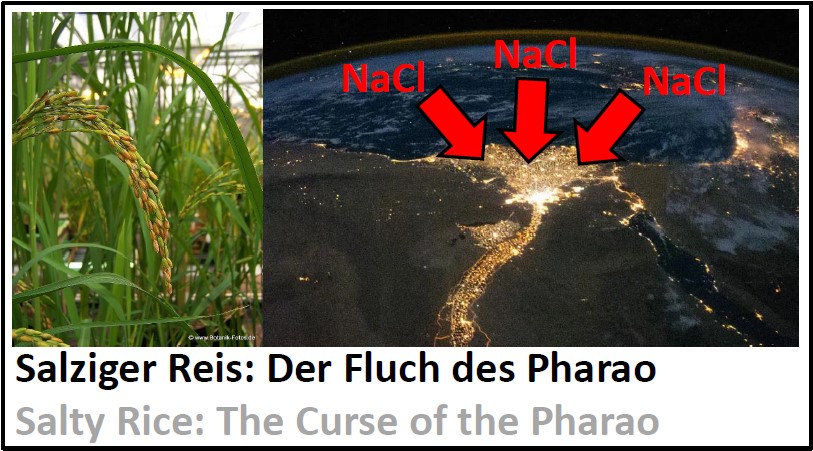10 A Rice Mutant Stays Cool Under Salt Stress
 |
Jasmonic acid and plant resilience against climate stress. 113. Hazman M, Hause B, Eiche E, Nick P, Riemann M (2015) Increased tolerance to salt stress in OPDA-deficient rice ALLENE OXIDE CYCLASE mutants is linked to an increased ROS-scavenging activity. J Exp Bot 66, 3339-3352 112 Zitate. pdf
What is it about? Climate change makes sealevels rise. This renders fertile land near the coasts progressively salty. Especially Egypt, Vietnam, and Bangladesh are stricken. To safeguard food security, we need new crops that can cope with salinity. Rice as globally most important staple food is in the focus here. A German-Egyptian project, funded by the German Ministry of Research, Desertcereals addressed salt and drought resilience of rice. Here, we discovered that mutants that have lost the ability to produce jasmonic aicd, the central stress hormone of plants, cope better than normal rice. When we tried to understand this, we found out that a precursor of jasmonic acid, OPDA, can cause oxidative burst, which will damage the plant. Our mutants cannot produce OPDA such they can stay cool and cope with the stress.
What can we do with this knowledge? It would not make sense to use these mutants for agriculture, because the complete lack of jasmonic acid brings numerous problems, such as reduced fertility. However, we can now develop strategies to contain OPDA under stress and, thus, improve the performance under salt or drought stress. The strategy would be molecular breeding, where we search wild ancestors of rice or old varieties for favourable variants of the relevant genes and introduce those by natural crossing into highe yielding varieties. Using the molecular knowledge we have now on the process, one can screen the progeny already in the seedling stage and define the best candidates. The lengthy field studies needed in traditional breeding can be replaced, such that the breeding is more precise and also faster. In contrast to genetic engineering, this approach relies only on natural gene flow without breaching any species barriers.
|
